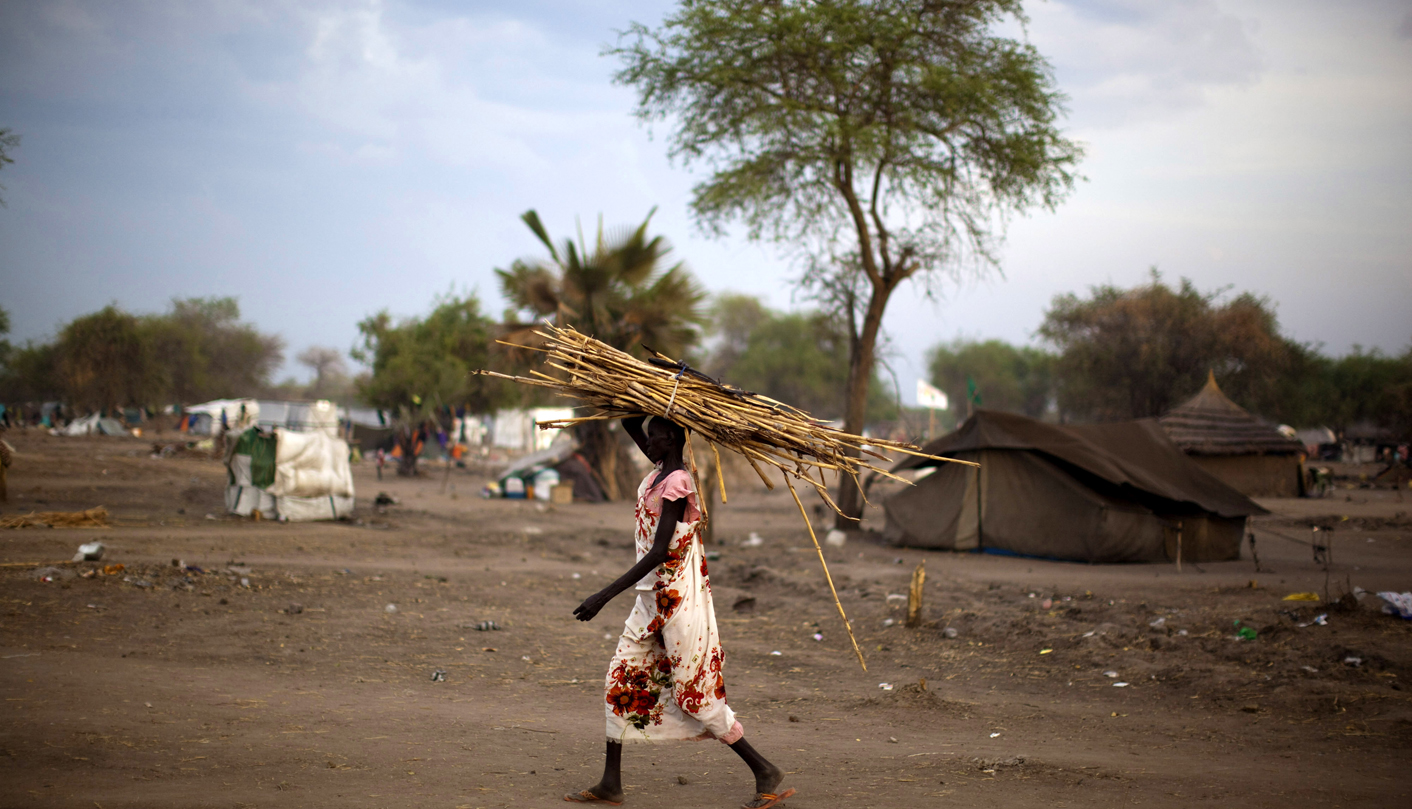“Many cows will be paid for you,” a young woman is told, believing she is the pride of her family and society and that the family she marries into will value her as their own and the union will knit their communities together.
This is supposed to be an entrenched part of our culture but instead, rape, sexual harassment and forced marriage have become the norm.
As a human rights activist in South Sudan since 2005, I have heard countless stories of sexual violence and loss. I remember a 13-year-old girl called Sarah describe how a neighbour raped her. Her mother cried as she told me, “This is how it is now, and this is how it was for me too.”
When Sarah’s father came home he beat her and dragged her to the neighbour’s house, demanding a settlement for the dowry. This was the start of Sarah’s marriage. I don’t know what became of her, or how many children she had, but her story is like so many others.
A girl is monetised before marriage and treated like property after it. The notion that she is special is nothing but a lie. And now, in times of civil war, as the world’s newest nation is tearing itself apart, a woman is valuable only in so far as she can inflict pain on the perceived other.
When the South Sudanese and the government of Sudan were at war from 1983 to 2005, women were kept from the frontlines so they would bear children to replace the millions being killed. The pressure to procreate for the war effort made them even more vulnerable. They were raped and killed by their enemies and their own communities.
During the relative peace from 2005 to 2013, sexual violence against women continued. Shortly after South Sudan’s independence, when the political dispute between President Salva Kiir and his former Vice President Riek Machar erupted on December 15 2013, the violence between military factions quickly assumed ethnic overtones and spread across the country within days. Targeted killing of Nuer citizens in Juba started a wave of revenge attacks on citizens in Bor, Malakal, Bentiu and elsewhere. Now over 50,000 people have died, more than two million people have been displaced, and the threat of widespread famine is real.
Even the warring sides describe the conflict as senseless and yet seem unable – or unwilling – to stop it.
And women and girls are being targeted like never before. Killing and rape is being repaid with more killing and rape, sparing neither young girls nor old women. Survivors tell of how they are forced to choose between rape and death. Those refusing rape are penetrated with sticks, guns and other objects and left to bleed to death. Gang rape is the alternative and many don’t survive the brutality. Pregnant women have had their babies ripped out of them. The horror stories continue. Cruelty is the norm and violence is met with more violence. As weapons keep pouring in, sporadic clashes continue, claiming more civilian lives and forcing yet more to flee.
Seven peace agreements have collapsed since the 15-month-old civil war began and still we are told that accountability is less important than peace and that it will simply cause more violence.
So what is a peace deal that does not address this culture of violence?
Towards the end of 2014 many of us hoped that the African Union Commission of Inquiry on South Sudan (AUCISS) would reveal the scale of suffering of our people over the past year and name those responsible. When African leaders decided not to release their report in late January for fear that it would derail yet another peace agreement, our hopes were dashed again. Even worse was the AU’s discrediting of the draft report released to the media on 5 March, implicating both Kiir and Machar and stating that neither they nor the Cabinet ministers implicated should be part of a transitional government.
For the AU to dismiss the report as “not that of the Commission of Inquiry” is to degrade all those who spoke to the Commission, to say little of the masses who have died or who are suffering today. The report may be unfinished but it is real: people have been quoted and named and incidents described. In light of its content the decision to postpone it indefinitely is shocking.
South Africa’s own Truth and Reconciliation process was lauded by the world. Both the Apartheid regime and the freedom fighters agreed to stop their hostilities, negotiate peace first and tackle justice later. But in South Sudan there is no outright victor. Both sides will continue to act with impunity unless the perpetrators are bought to justice.
Ignoring the violence is costing this fragile new nation its future and the region its stability. The problems we face are clear and the opportunities to rectify them at hand. Only with honesty can we bring an end to the bloodshed and live by the values that matter. The final and official AUCISS report should be released if the ultimate goal is to end the culture of violence.
Otherwise all of us will be the losers: men, women and the children we bear, our cultures and the country we all share. Nearly four years ago the people of South Sudan celebrated independence and united with extraordinary joy. That is the nation we want back. DM
Photo: A photograph made available on 09 March 2014 shows a South Sudanese woman carrying wood in the biggest IDP camp for Dinka ethnic group placed in Minkamman, South Sudan, 04 March 2014. EPA/JM LOPEZ




